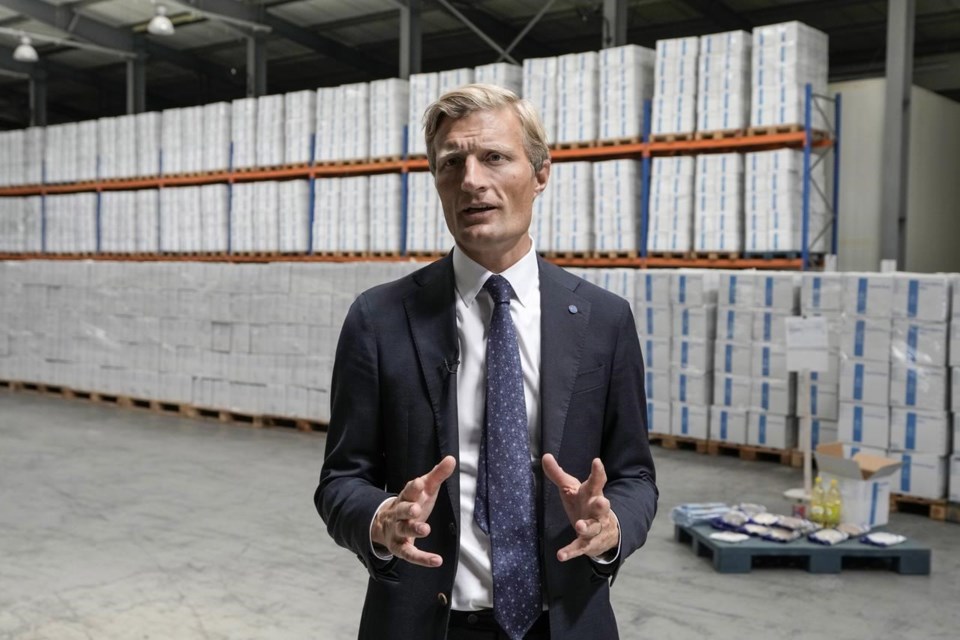DEKWANEH, Lebanon (AP) — If the monthslong conflict playing out on the Lebanese-Israeli border continues to escalate, the United Nations food agency won't be ready for the spike in nutritional needs across crisis-hit Lebanon, its deputy executive director said Wednesday.
Clashes between the Lebanese militant group Hezbollah and Israeli forces began on Oct. 8, a day after Israel started bombarding the Gaza Strip following Hamas’ deadly rampage in southern Israel, and the tensions between the two sides .
“So far we’ve been able to manage based on the existing resources we have,” UN World Food Program’s , who is on a brief visit to the small Mediterranean nation, told The Associated Press.
The WFP provides aid to over 158,000 people in Lebanon affected by the hostilities, including 93,000 displaced from their homes. But the agency does not have the funding to address the growing humanitarian needs “should the situation further escalate and further deteriorate,” Skau said.
Given donor fatigue and shrinking international aid budgets, it isn't clear where the additional funding can come from.
Skau toured a WFP warehouse stocking food rations in the northern Beirut suburb of Dekwaneh, built during the COVID-19 pandemic when Lebanon’s economy began to spiral, allowing the agency to stockpile some supplies. With the current situation, the UN agency fears those supplies could drain quickly with no backup plan.
Lebanon has also been suffering from a crippling economic crisis since 2019. Additionally, the country of about 6 million people is hosting more than 1 million refugees from neighboring Syria.
Food inflation in Lebanon is among the worst worldwide, which Skau said is incomparable except with “maybe Zimbabwe or Argentina.”
The conflict on the border is fueling further concern.
What started as strikes limited to a handful of towns along the border has since spiraled, sparking fear of a regional war. Israeli jets continue to strike deeper into Lebanon, while Hezbollah, a Hamas ally, strikes Israel more frequently with rockets and explosive drones.
Israeli strikes have killed more than 370 people in Lebanon over the past seven months, and while most were fighters with Hezbollah and allied groups, more than 70 civilians and non-combatants were also left dead. Strikes launched from Lebanon have killed at least 14 soldiers and 10 civilians in Israel.
Top officials from the World Bank also visited Lebanon on Tuesday and Wednesday to check on a couple of projects the agency is funding, including a cash assistance program in collaboration with the WFP that provides aid to about 100,000 vulnerable families in the country.
The World Bank’s Managing Director of Operations, Anna Bjerde, said the financial institution is working to address the “prolonged and severe economic and financial crisis which has increased poverty in the country.”
Skau also said he wants to find ways to scale up such assistance programs, but “funding is coming down.”
“We estimated about 25 percent of the Lebanese and refugees are acutely food insecure, and we assisted some 2.5 million people last year,” he said.“This year we’re estimating that we’ll be able to support maybe 1.5 million.”
Kareem Chehayeb, The Associated Press




